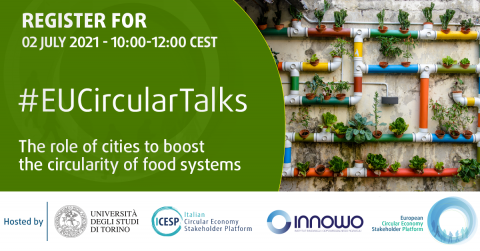Europe is waking up to the transformative power of food in all areas of life – social, economic and environmental. Cities are at the heart of food system transformation. They play a critical strategic role in boosting food circularity. Global food systems are pivotal for population growth, urbanisation and economic development.
It is estimated that there will be around 9 billion people on Earth by 2050, with almost 70% of them living in urban areas. This increase in the global population might require three times more resources than we currently use.
This requirement is problematic since around 80% of all materials are directly discarded after usage, highlighting the need for a circular alternative to the linear “take, make, and dispose of” model.
As part of the EU’s Green Deal, the Farm-to-Fork strategy will attempt to make Europe’s food systems fair, sustainable and healthy.
The University of Turin, the Leadership Group on Food waste, food system, bioeconomy and the ECESP held a #EUCircularTalks event on the role of cities in boosting the circularity of food systems. The event aimed to share insights and best practices on how we can help design and build circular food systems that foster the urban food transformation.
From a holistic and multi-stakeholder approach, the event wanted to better understand the new role played by local authorities, food companies, farmers, start-ups, digital platforms and individuals in bringing about inclusive, resilient, safe and diverse urban food systems.




